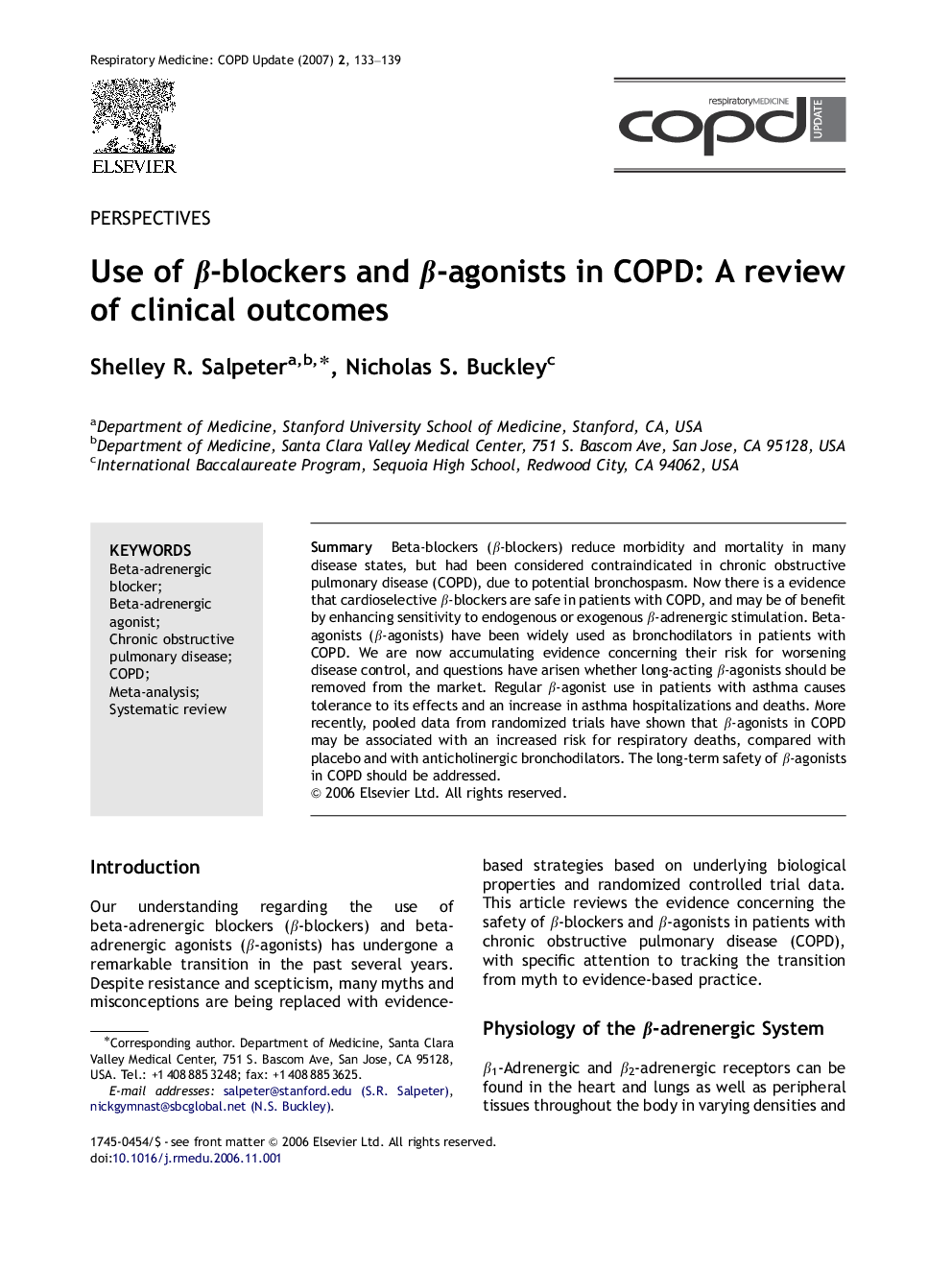| Article ID | Journal | Published Year | Pages | File Type |
|---|---|---|---|---|
| 4213428 | Respiratory Medicine: COPD Update | 2007 | 7 Pages |
SummaryBeta-blockers (β-blockers) reduce morbidity and mortality in many disease states, but had been considered contraindicated in chronic obstructive pulmonary disease (COPD), due to potential bronchospasm. Now there is a evidence that cardioselective β-blockers are safe in patients with COPD, and may be of benefit by enhancing sensitivity to endogenous or exogenous β-adrenergic stimulation. Beta-agonists (β-agonists) have been widely used as bronchodilators in patients with COPD. We are now accumulating evidence concerning their risk for worsening disease control, and questions have arisen whether long-acting β-agonists should be removed from the market. Regular β-agonist use in patients with asthma causes tolerance to its effects and an increase in asthma hospitalizations and deaths. More recently, pooled data from randomized trials have shown that β-agonists in COPD may be associated with an increased risk for respiratory deaths, compared with placebo and with anticholinergic bronchodilators. The long-term safety of β-agonists in COPD should be addressed.
